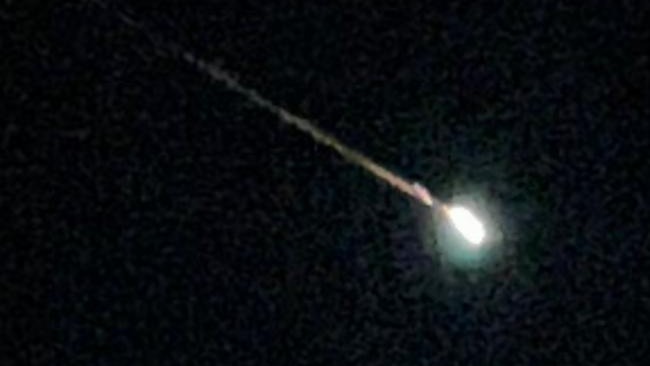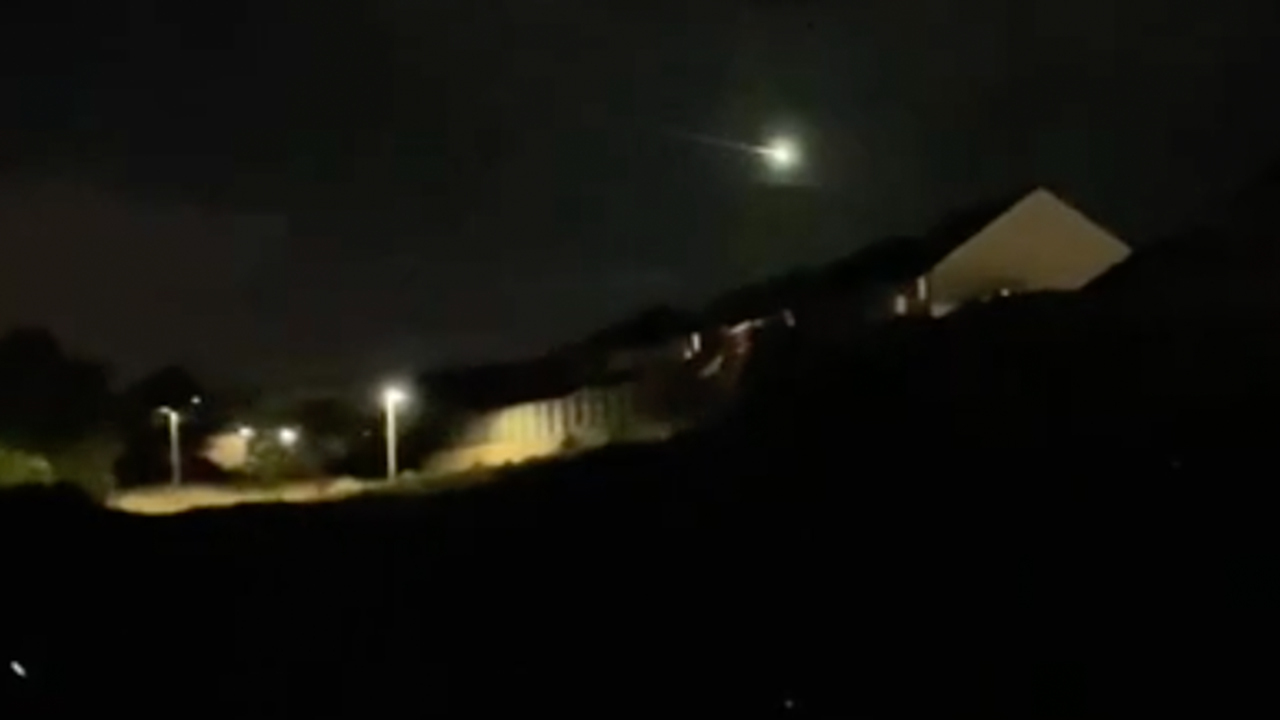Brilliant green meteor lights up the skies over United Kingdom (video)
The best views came from Scotland, northern Ireland and the coast north of Manchester.
A green-tinged fireball lit up the skies over the United Kingdom late Wednesday (Sept. 14).
An incoming meteor (or bunch of space debris, which some experts say it may be) broke up between Scotland and northern Ireland within view of much of the United Kingdom, which has a population of nearly 70 million people.
More than 1,000 reports flowed in to the American Meteor Society despite the late hour, including a collection of photos and videos of the fireball event. Dozens of reports and videos also appeared on Twitter, as you can see below, from dashcams, doorbell cameras and mobile phones.
Related: Brilliant yellow-green fireball lights up sky above England (video, photos)
Did I legit just see a shooting star in Motherwell or is that something crashing out the sky? pic.twitter.com/DBQh8zXjnTSeptember 14, 2022
Can’t believe I seen this and managed to catch it on camera!! Going over Paisley at 10pm☄️ #glasgow #paisley #meteor #comet #fireball @UKMeteorNetwork @Daily_Record pic.twitter.com/mH9o2062nISeptember 14, 2022
Fireball spotted crossing #Donegal this evening. Described as green and lighting up the sky. Some described hearing a load bang a short time later. pic.twitter.com/0WavzL7cuKSeptember 14, 2022
Wow the comet tonight #comet #asteroid #meteor pic.twitter.com/jQ5YFvmhHLSeptember 14, 2022
Fireball over Glasgow, caught on my dashcam. #fireball #meteor pic.twitter.com/eoWDL6JgwNSeptember 14, 2022
So far we have received 35 public reports about a fireball spotted at 21:00 and a couple of our cameras caught it pic.twitter.com/jLDrHMPQvdSeptember 14, 2022
Fireball over Belfast tonight pic.twitter.com/RfLNB622leSeptember 14, 2022
One viewer joked that the universe was celebrating their newly minted Ph.D.
Pretty great of the universe to give me a #glasgow #meteor the day I pass my PhD 🥳😂☄️ if you’ve any footage please make sure to send it to @UKMeteorNetwork and @UK_FireballSeptember 15, 2022
AMA's initial computer trajectory suggests the fireball first appeared north of Loch Ryan (roughly a two-hour drive southwest of Glasgow) and disappeared north of Islay Island, further north along the coast of the United Kingdom.
The United Kingdom meteor network reported 800 viewings of the fireball in the early morning hours, adding their experts suspect it is space debris.
Breaking space news, the latest updates on rocket launches, skywatching events and more!
Given the length of the reported event, at 19 seconds, astronomer Will Gater said on Twitter also said he suspected the fireball might be a space debris event. Jonathan McDowell, a debris observer based at the Harvard Smithsonian Center for Astrophysics, tweeted it may be SpaceX Starlink satellite 4653, "but my estimate had it going a bit to the south of the U.K."
Gater also wrote an article for New Scientist, and spoke with University of Glasgow planetary scientist Luke Daly; Daly, a member of the UK Fireball Alliance, said there is "a reasonably high chance that this is space junk" based on metrics such as its slower speed, "shallow entry angle [and] a substantial amount of fragmentation."
Regardless of the fireball's origin, the event was harmless as it took place dozens of miles (or kilometers) high in the atmosphere. No astronomical society has yet reported whether it generated meteorites, which rarely happen when a space rock naturally breaks up in the atmosphere and portions make it to the ground.
Follow Elizabeth Howell on Twitter @howellspace. Follow us on Twitter @Spacedotcom and on Facebook.

Elizabeth Howell (she/her), Ph.D., was a staff writer in the spaceflight channel between 2022 and 2024 specializing in Canadian space news. She was contributing writer for Space.com for 10 years from 2012 to 2024. Elizabeth's reporting includes multiple exclusives with the White House, leading world coverage about a lost-and-found space tomato on the International Space Station, witnessing five human spaceflight launches on two continents, flying parabolic, working inside a spacesuit, and participating in a simulated Mars mission. Her latest book, "Why Am I Taller?" (ECW Press, 2022) is co-written with astronaut Dave Williams.


